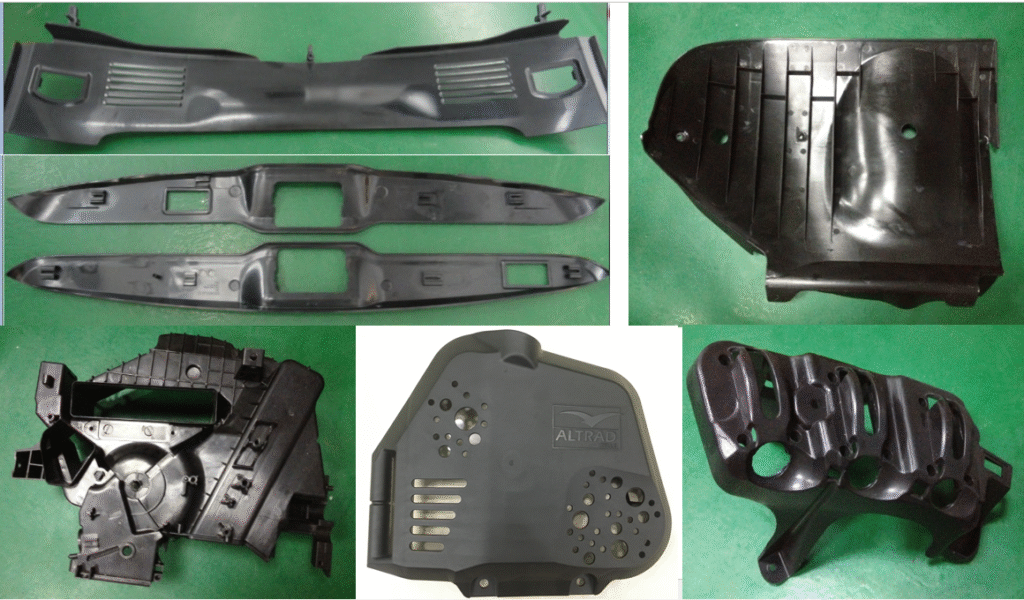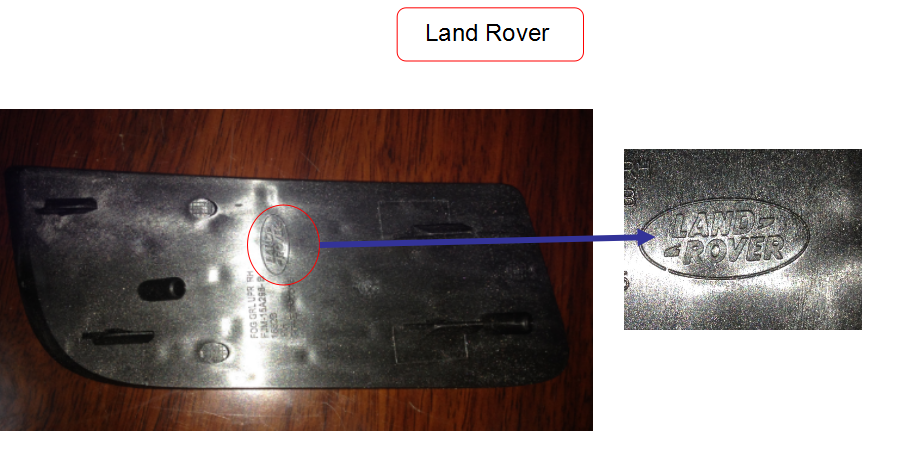If you’ve ever wondered how those sleek, durable food containers, drink caps, or kitchen accessories are made, the answer is often injection molding.
At LXG Injection Molding, we specialize in creating high-quality injection molding food products that meet safety standards, ensure hygiene, and maintain exceptional consistency in every batch.
Whether you’re launching a new food brand, upgrading packaging, or producing custom utensils, injection molding offers a fast, efficient, and cost-effective solution. Let’s break it all down in simple terms.
Instant pricing & DFM
Guidance from automotive molding experts
Tight tolerances, complex geometries, and multi-material capabilities
Proven expertise with 3,000+ molds delivered worldwide
What Is Injection Molding for Food Products?
Injection molding food products involves injecting molten, food-grade plastic into a precision mold under high pressure. The mold gives the final product its exact shape and dimensions — whether that’s a yogurt cup, reusable lunch box, or bottle cap.
Once cooled, the molded item is ejected, inspected, and ready for labeling, decoration, or direct use.
The process is ideal for mass production because it guarantees uniform quality, high speed, and very low per-unit cost.
Why Food Brands Choose Injection Molding
For food manufacturers and packaging brands, consistency and compliance are everything. Injection molding checks every box:
✅ Food-Safe Materials — We use FDA-approved, BPA-free plastics and certified food-contact resins.
⚙️ Precision and Consistency — Every item is identical, ensuring perfect fit and seal for containers, caps, or trays.
💰 Cost-Effective at Scale — Once your mold is made, producing thousands or millions of units becomes extremely affordable.
♻️ Sustainability Options — We offer recyclable and biodegradable materials for eco-conscious brands.
⏱️ Fast Production Cycles — High-speed molding machines reduce lead time and get your products to market faster.
Common Food Products Made with Injection Molding
You might be surprised at how many everyday food-related items are made this way. Some examples include:
Food storage containers and lids
Beverage bottle caps
Measuring cups and scoops
Coffee machine parts
Ice trays and molds
Kitchen utensils and serving spoons
Reusable straws
Lunch boxes and meal-prep trays
Dairy tubs, yogurt cups, and margarine containers
Injection molding food-grade products allows brands to deliver hygienic, safe, and reusable items that customers trust.
How the Injection Molding Food Process Works
Here’s how your project comes to life at LXG Injection Molding:
1. Design Consultation
We start with your idea — it can be a sketch, 3D model, or sample. Our engineers analyze it for feasibility and manufacturability, ensuring your injection molding food products are practical and safe.
2. Material Selection
We recommend food-grade resins like Polypropylene (PP), Polyethylene (PE), or Tritan that meet FDA and EU food-contact standards. These plastics are strong, non-toxic, odorless, and easy to clean.
3. Mold Fabrication
We design and manufacture a custom mold using steel or aluminum. This mold defines every curve, line, and locking mechanism of your product.
4. Injection Molding
Molten plastic is injected into the mold under controlled pressure and temperature. Once cooled, it solidifies into the exact shape of your product.
5. Finishing and Assembly
After molding, products may go through trimming, surface finishing, printing, or labeling — all done in a clean, food-safe environment.
6. Quality Control
Each product batch undergoes strict CMM, FAI, and SPC inspections to ensure uniformity and compliance with food safety regulations.
7. Packaging and Delivery
We pack your food products safely and deliver them anywhere — from local orders to international bulk shipments.
Why Food-Grade Injection Molding Matters
Unlike regular plastic production, food-grade injection molding follows strict rules to ensure materials never contaminate the food they contact.
At LXG Injection Molding, we use materials that are:
Non-toxic and BPA-free
Resistant to heat and chemical reactions
Compliant with FDA, RoHS, and ISO 13485 standards
This makes our products suitable for both direct food contact (like cups or containers) and indirect contact (like handles, dispensers, or caps).
Materials Used in Food Injection Molding
When it comes to injection molding food products, the material you choose determines safety, durability, and cost. Here are the most common options:
1. Polypropylene (PP)
The most popular choice — lightweight, heat-resistant, and dishwasher safe. Perfect for containers, lids, and reusable cutlery.
2. Polyethylene (PE)
Soft, flexible, and ideal for squeeze bottles or liners.
3. Polycarbonate (PC)
Crystal clear and impact-resistant, often used for food processors, blenders, and beverage containers.
4. Tritan
A BPA-free alternative to glass — tough, transparent, and safe for hot liquids.
5. Silicone (for hybrid molding)
Sometimes combined with plastic for heat-resistant or non-slip designs — think baby feeding spoons or baking molds.
Custom Food Injection Molding with LXG
When you work with us, you’re not buying a generic product — you’re building a custom solution.
We offer:
Custom mold design for any shape or size
Color matching for brand consistency
Logo engraving or labeling
Texture and finish customization (matte, gloss, or patterned)
Multi-cavity molds for high-volume runs
Your vision, our engineering — that’s how great food packaging and accessories are made.
Applications of Injection Molding in the Food Industry
Here’s how various businesses use injection molding to elevate their brand and efficiency:
Food Packaging
Companies use injection molding to produce reusable containers, tamper-evident lids, and portion-controlled packaging.
Restaurant and Catering Supplies
Reusable trays, serving utensils, and storage boxes made with injection molding food-grade materials last longer and withstand commercial dishwashers.
Kitchenware Manufacturers
Kitchen tool brands use the process to produce ergonomic, high-precision utensils at scale.
Food Equipment Manufacturers
Injection-molded components power beverage dispensers, coffee makers, juicers, and more.
Sustainable Packaging Startups
Eco-conscious brands leverage recyclable resins and biodegradable polymers through injection molding food products to replace single-use plastic.
Advantages of Ordering Injection Molded Food Products
When you partner with LXG, you benefit from:
Speed: Rapid prototyping in days, full production in weeks.
Quality: ISO-certified production and food-grade validation.
Customization: Endless shapes, textures, and finishes.
Scalability: From a few prototypes to millions of pieces.
Affordability: Low per-unit cost once tooling is complete.
Global Delivery: 3,000+ molds exported to 40+ countries.
Whether you’re a small startup or a global brand, LXG Injection Molding ensures consistent, high-quality products that meet your exact standards.
Cost of Injection Molding Food Products
The total cost depends on a few factors:
Design complexity – More intricate shapes require advanced tooling.
Material type – Food-safe plastics like Tritan or PC cost more than standard resins.
Production volume – Higher quantities lower your per-unit price.
Finishing options – Custom coloring, labeling, or texturing add small costs.
At LXG Injection Molding, we help you optimize every step — so your investment brings maximum returns.
Why Choose LXG Injection Molding
20+ years of industry expertise
In-house tooling, molding, and finishing
Full compliance with food safety standards
Competitive pricing and no MOQ limits
On-time delivery and global logistics support
We don’t just make parts — we make partnerships that last.
Sustainability in Food Injection Molding
As consumers demand eco-friendly packaging, LXG Injection Molding leads the way with:
Recyclable materials like PP and PET
Bio-based resins for compostable designs
Energy-efficient machines
Closed-loop waste recycling systems
Our mission is simple: create sustainable plastic solutions that help your brand grow responsibly.
How to Get Started
If you’re ready to develop or order injection molding food products, here’s what to do:
Contact us with your concept or design.
Receive a quote and design review.
Approve materials and tooling.
Get prototypes in as little as 5–7 days.
Move to mass production.
It’s that easy — and we handle every step in-house.
Conclusion: Build Your Food Product Line with LXG
Injection molding isn’t just about manufacturing — it’s about turning your vision into something tangible, consistent, and market-ready.
At LXG Injection Molding, we’ve helped hundreds of businesses design, test, and produce injection molded food products that meet strict food safety and brand standards.
From durable lunch boxes to elegant reusable containers, we bring innovation, reliability, and precision to every project.
👉 Ready to get started?
Visit LXGInjectionMolding.com or contact our team today to discuss your next project.
Our Work



Get Instant Price, Projects lead time and DFM Feedback
Our Partners







